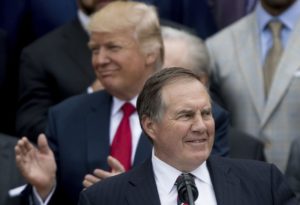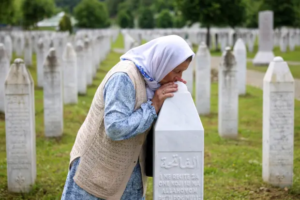As COVID-19 disproportionately devastates Black communities, seven in ten African Americans say people are treated unfairly based on race or ethnicity when they seek medical care.
AFRICAN AMERICANS HAVE a dim view of the nation’s health care system, which they see as infected by the same racism they encounter on the job, out shopping, in the classroom or interacting with the police.
A new nationwide poll by The Undefeated and the Kaiser Family Foundation (KFF) found that 7 in 10 African Americans believe that people are treated unfairly based on race or ethnicity when they seek medical care. It’s a feeling born of unequal history and intensified by the coronavirus pandemic, which is disproportionately ravaging Black lives both physically and economically.
The poll, which included interviews with 777 African Americans, is the most comprehensive survey of Black attitudes and experiences with health care since the start of the pandemic. Among the findings:
- About four out of 10 Black adults said they knew someone who has died from the coronavirus, almost double the rate for white people.
- One-third of Black adults and nearly half of Black parents are struggling to pay their bills as a result of the pandemic. Two out of 3 Black parents have either lost jobs or had their incomes interrupted since the pandemic struck in February.
- While a sizable minority of Americans of all races are deeply skeptical of the nation’s byzantine health care system, the feeling is more pronounced in the Black community. Fifty-five percent of African Americans said they distrust it.
- Despite the horrific toll of the pandemic, African Americans are doubtful about the promise of a coronavirus vaccine that public health officials hope to begin deploying in the coming months. Just half of African Americans surveyed said they would be interested in taking a vaccine, even if it were determined to be safe and were provided at no cost. By comparison, 2 in 3 white people said they would definitely or probably get vaccinated, as did 6 in 10 Hispanics. The vast majority of African Americans who said they would not take a coronavirus vaccine did not think that it would be properly tested, distributed fairly or developed with the needs of Black people in mind.
Public health experts called the misgivings around a vaccine an outgrowth of the discrimination many African Americans endure, not only as they attempt to access health care, but also as they go about their daily lives.
“We have a centurieslong legacy in this country of basically Black people, in particular, and other people of color as well, being treated poorly,” said Dr. Lisa A. Cooper, an internist who directs The Johns Hopkins Center for Health Equity. “So why should Black people trust any institution? It has gone on for so long.”




